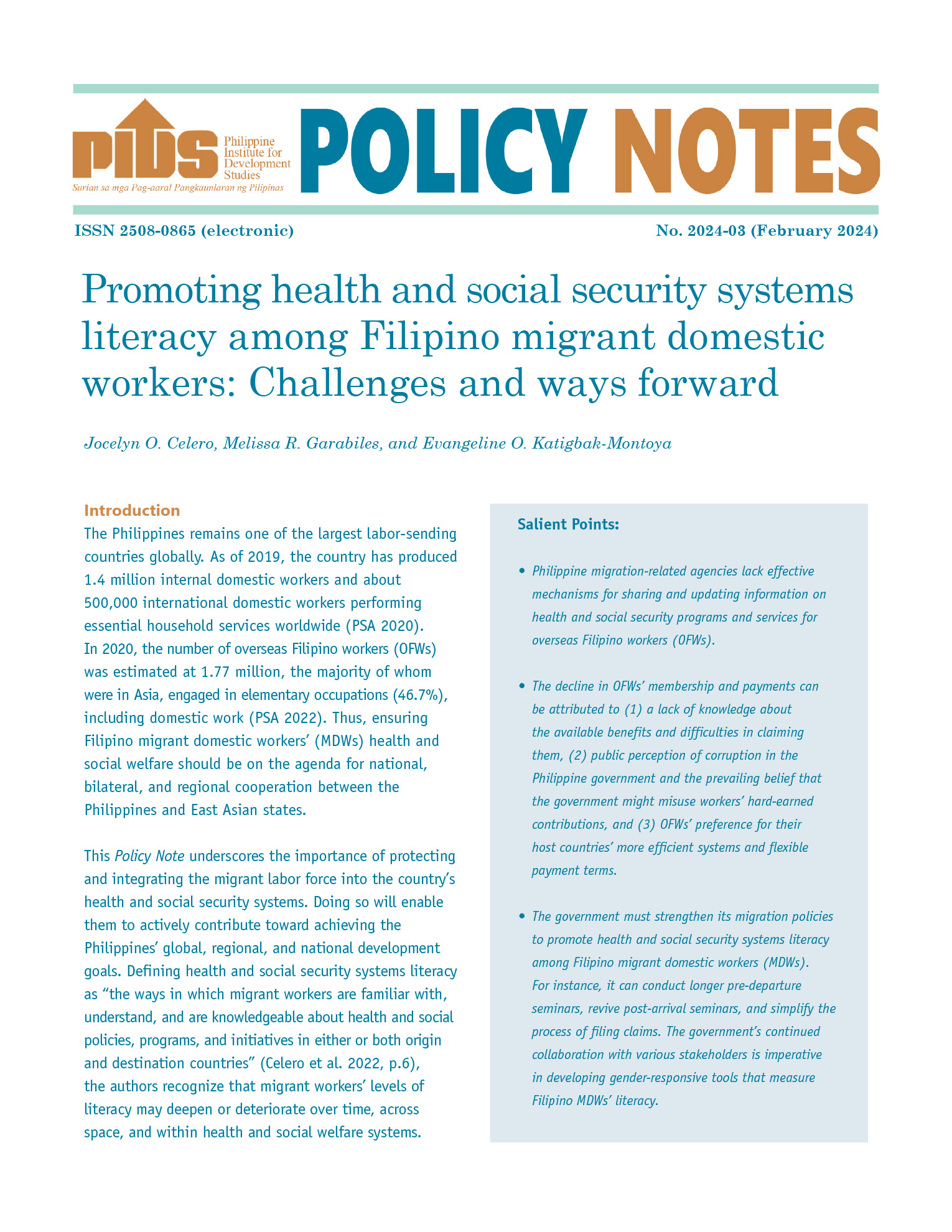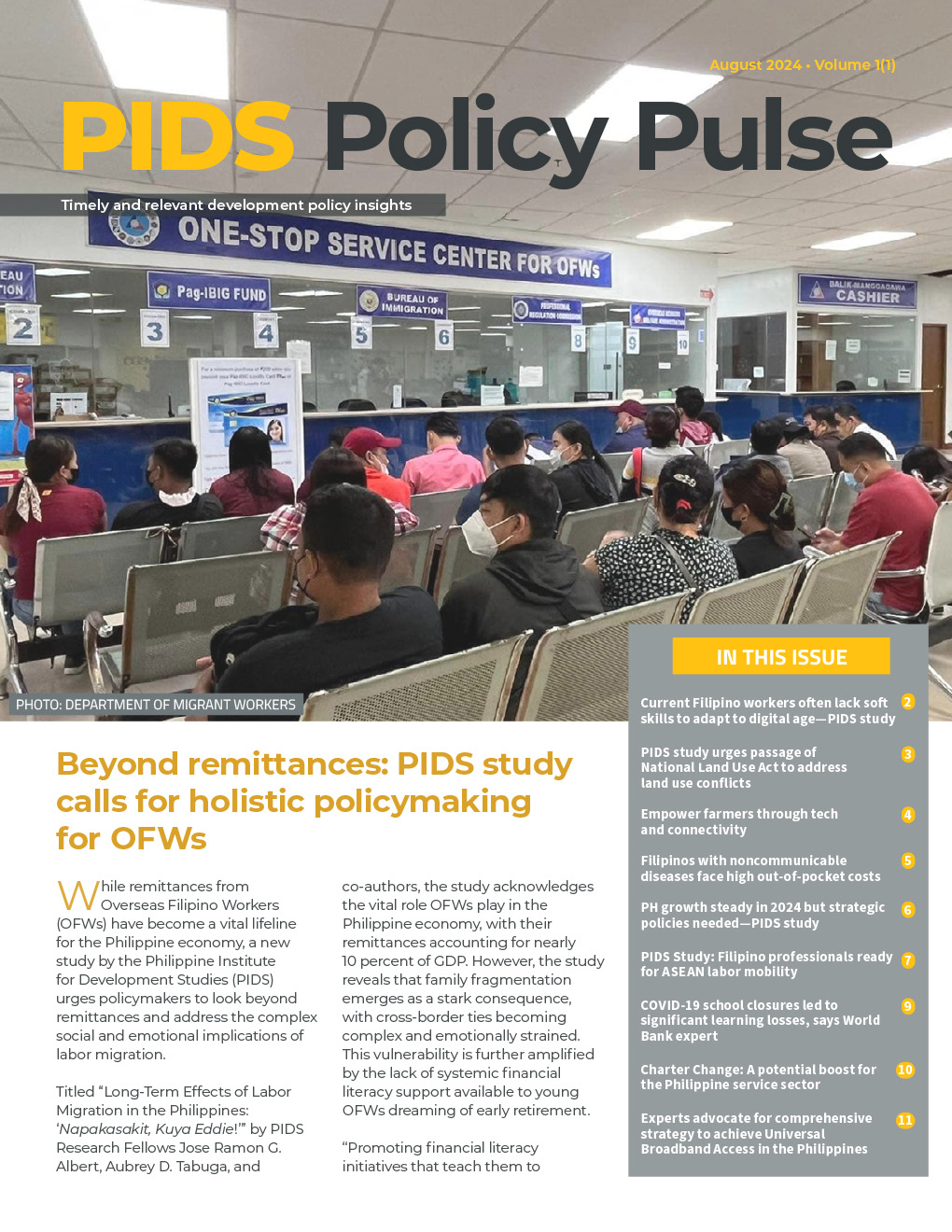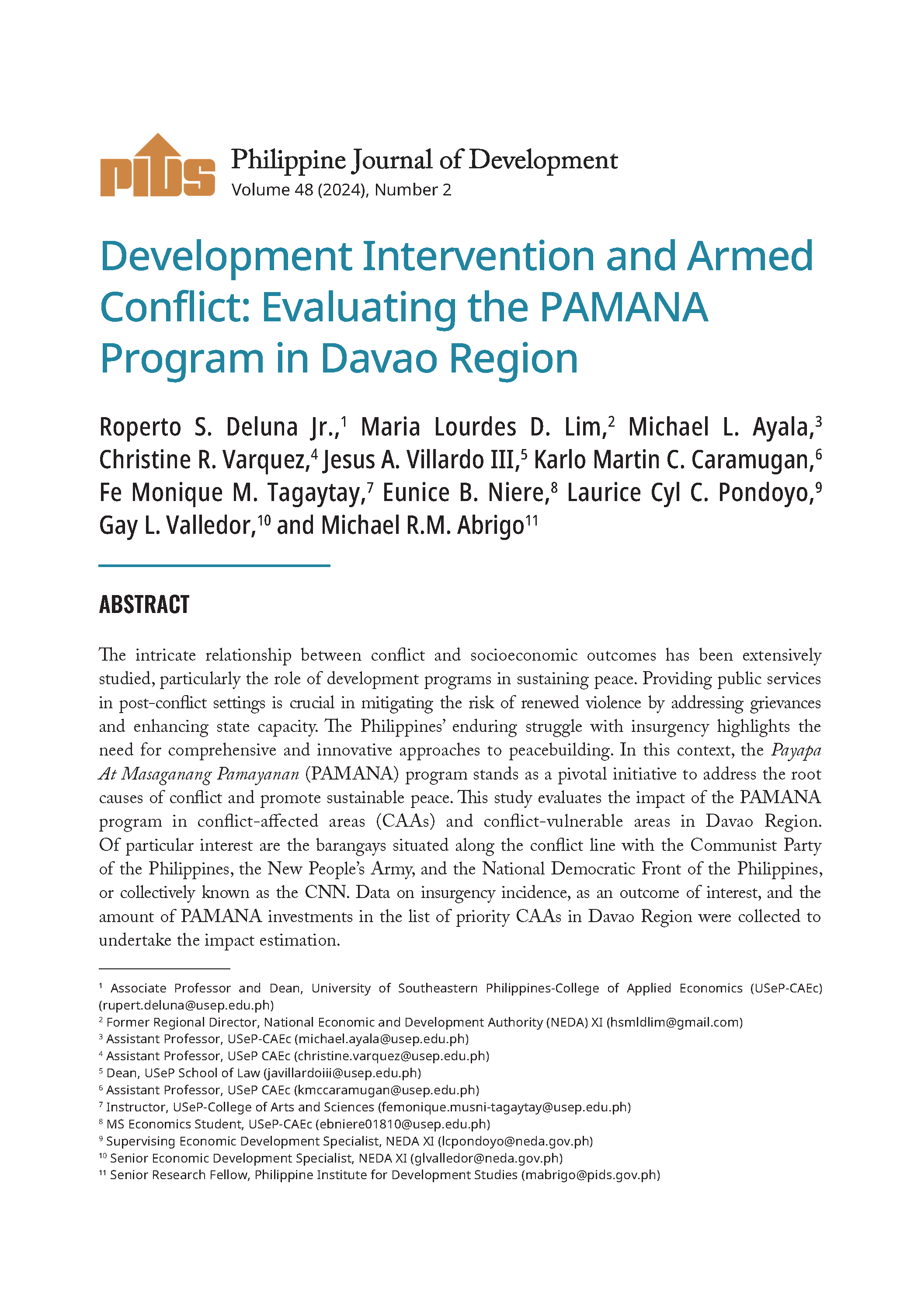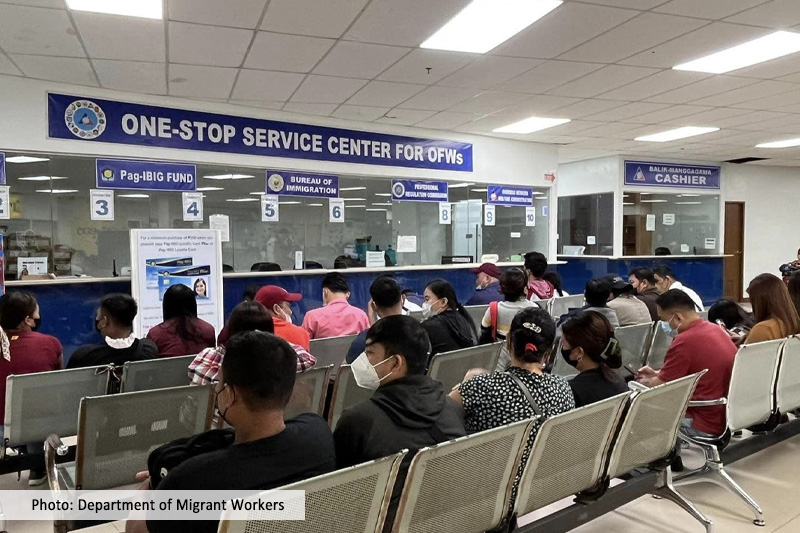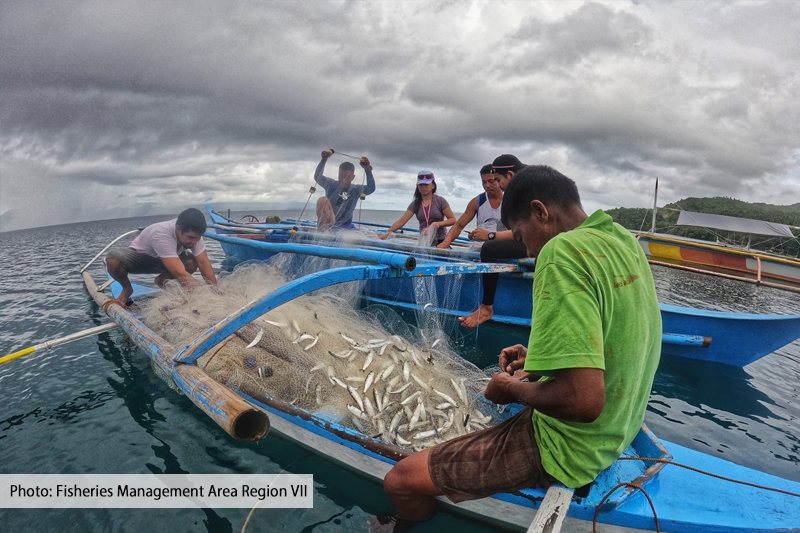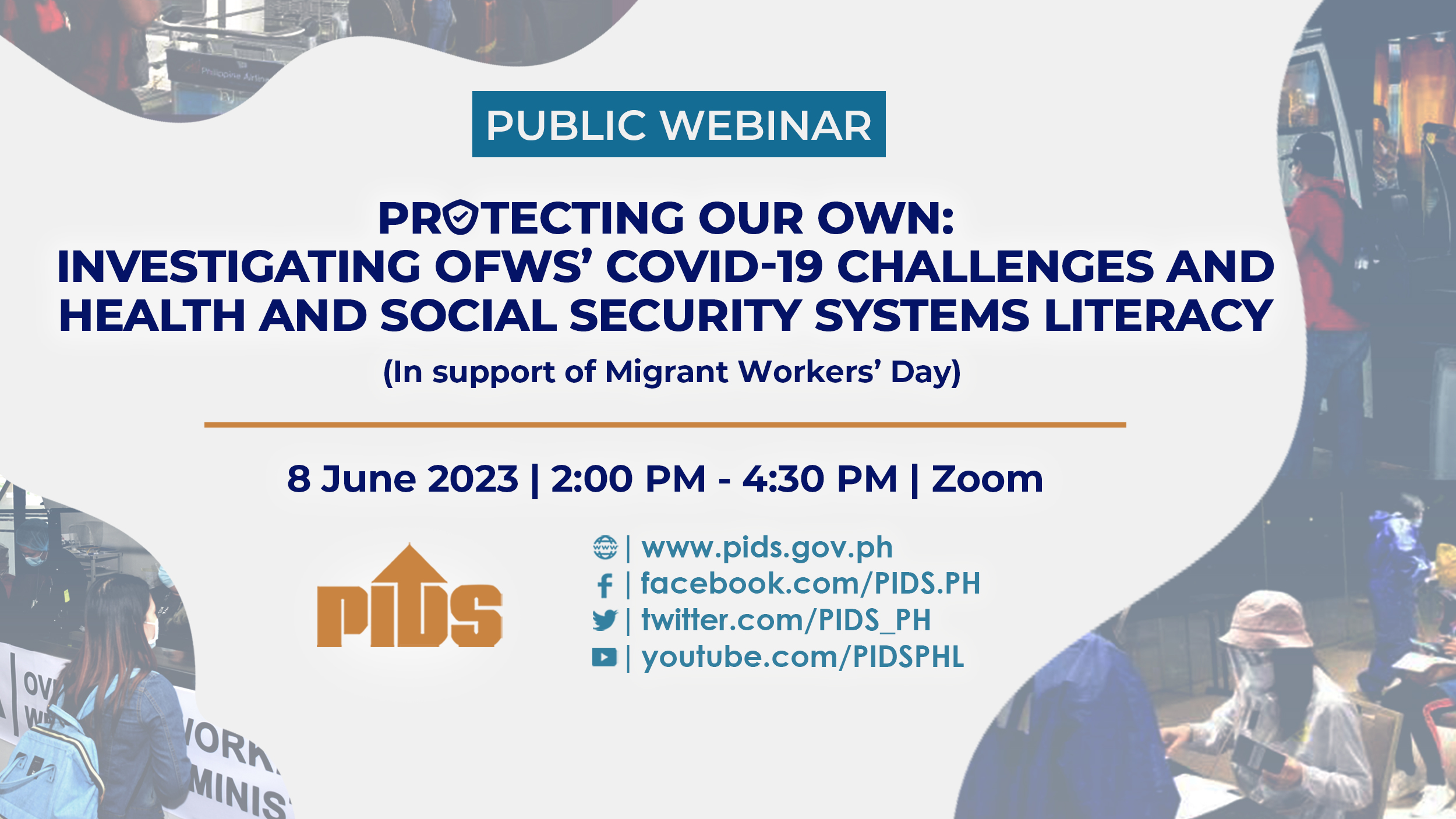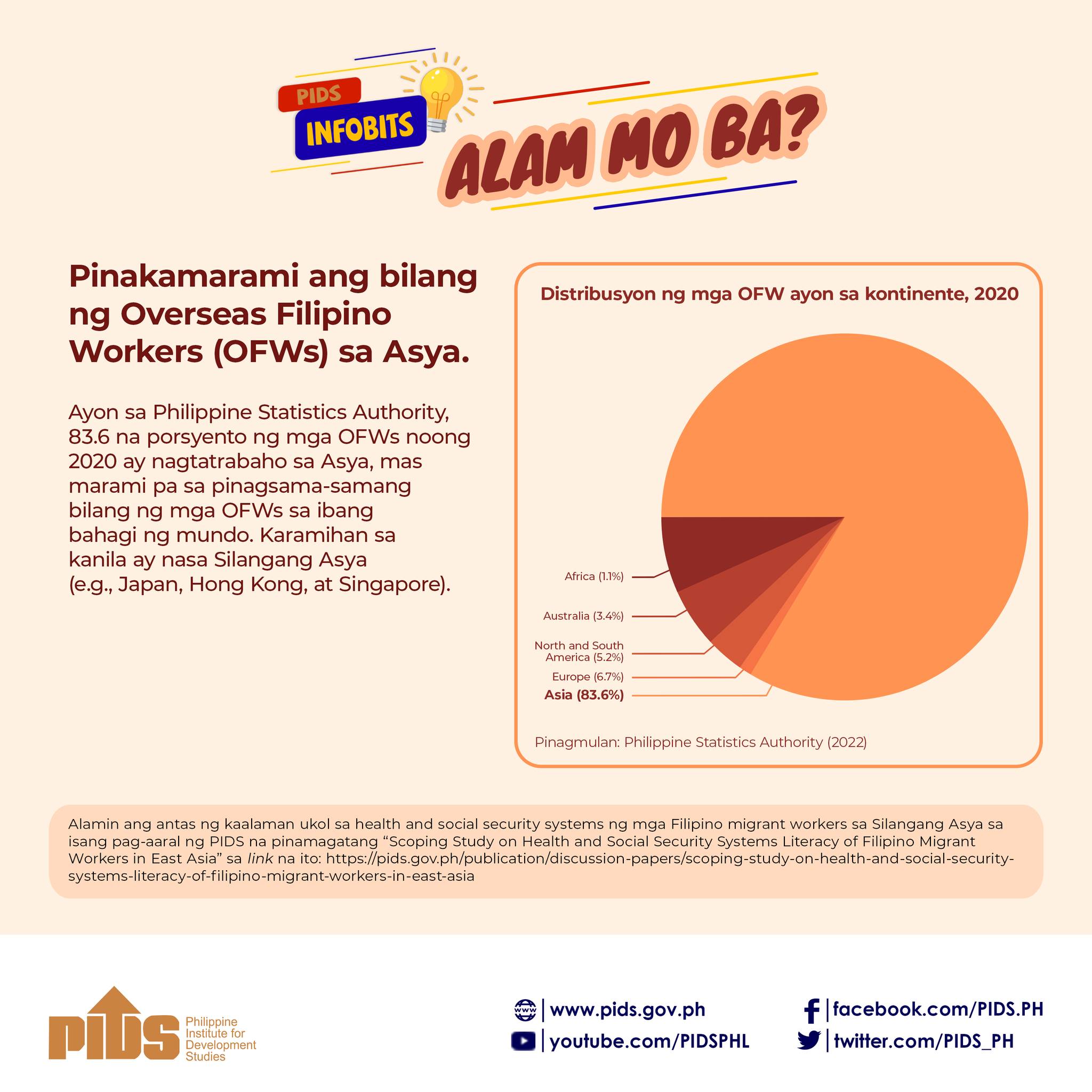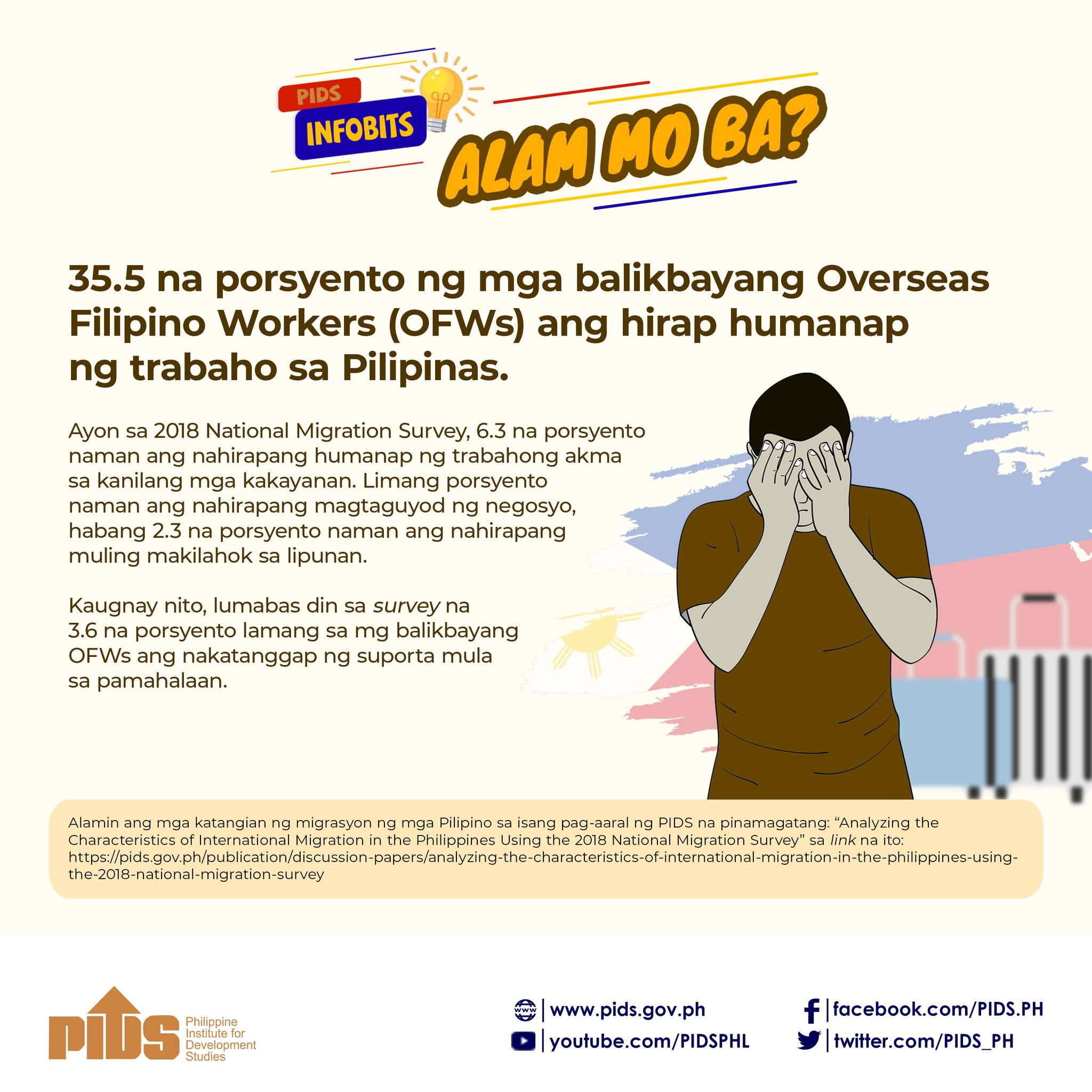OVERSEAS Filipino workers (OFWs) will be “less affected” by the migrant crisis in Europe, because they are employed in highly in-demand jobs, according to a Europe-based economist.
The Philippine Institute for Development Studies (Pids) recently invited Prof. Lino Briguglio of the University of Malta to talk about the European Union’s (EU) migrant crisis.
The crisis in Europe is not expected to create a large and adverse effect on the Philippines, particularly for millions of OFWs in the region.
“The Filipino people have a very good reputation in Europe,” Briguglio said. “They often occupy jobs that are in demand.”
“The migrant crisis will impact your overseas work force as far as the tightening of visa rules and requirements is concerned. If the EU collapses, the issue of stricter border rules will be a problem that the whole Europe and other foreigners will face and not just your Filipino expats,” he added.
Based on the results of 2014 Survey on Overseas Filipinos (SOF) released by the Philippine Statistics Authority (PSA) last year, there were 7.1 percent of all OFWs worldwide in Europe.
Of the total male OFWs working worldwide, 10.1 percent are in Europe; and of the total female OFWs, only 4.2 percent are working in Europe.
PIDS President Gilberto Llanto said the European migrant crisis has been pegged as one of the big global shocks of this year.
Because shocks do not occur in silos, Llanto said they directly affect other potential and ongoing risks, given the interconnected nature of threats to global, regional and national stability.
“This puts the onus on policymakers to evaluate in-depth how something as critical as the European migrant crisis could possibly affect a far-off country like the Philippines,” Llanto added.
Briguglio pointed out three dimensions of the migrant crisis. According to Briguglio, the EU migration crisis has three dimensions, and these are associated with border control, grant of asylum and humanitarian considerations.
However, he said it is difficult to differentiate legitimate asylum- seekers from migrants seeking economic opportunity.
The PIDS also raised during the forum that Europe can learn something from the Philippines when it comes to migrant and refugee policies.
The Philippines is one of only a handful of signatories to the 1952 Refugee Convention with a clear procedure on managing refugees.
A Refugee and Stateless People Protection Unit under the Department of Justice regularly deals with refugees from countries like Syria and Pakistan, more often than the public is aware of.
In 2012, the United Nations lauded the Philippines for establishing an emergency transit mechanism to help process refugee application papers and assist irregular migrants.//
The Philippine Institute for Development Studies (Pids) recently invited Prof. Lino Briguglio of the University of Malta to talk about the European Union’s (EU) migrant crisis.
The crisis in Europe is not expected to create a large and adverse effect on the Philippines, particularly for millions of OFWs in the region.
“The Filipino people have a very good reputation in Europe,” Briguglio said. “They often occupy jobs that are in demand.”
“The migrant crisis will impact your overseas work force as far as the tightening of visa rules and requirements is concerned. If the EU collapses, the issue of stricter border rules will be a problem that the whole Europe and other foreigners will face and not just your Filipino expats,” he added.
Based on the results of 2014 Survey on Overseas Filipinos (SOF) released by the Philippine Statistics Authority (PSA) last year, there were 7.1 percent of all OFWs worldwide in Europe.
Of the total male OFWs working worldwide, 10.1 percent are in Europe; and of the total female OFWs, only 4.2 percent are working in Europe.
PIDS President Gilberto Llanto said the European migrant crisis has been pegged as one of the big global shocks of this year.
Because shocks do not occur in silos, Llanto said they directly affect other potential and ongoing risks, given the interconnected nature of threats to global, regional and national stability.
“This puts the onus on policymakers to evaluate in-depth how something as critical as the European migrant crisis could possibly affect a far-off country like the Philippines,” Llanto added.
Briguglio pointed out three dimensions of the migrant crisis. According to Briguglio, the EU migration crisis has three dimensions, and these are associated with border control, grant of asylum and humanitarian considerations.
However, he said it is difficult to differentiate legitimate asylum- seekers from migrants seeking economic opportunity.
The PIDS also raised during the forum that Europe can learn something from the Philippines when it comes to migrant and refugee policies.
The Philippines is one of only a handful of signatories to the 1952 Refugee Convention with a clear procedure on managing refugees.
A Refugee and Stateless People Protection Unit under the Department of Justice regularly deals with refugees from countries like Syria and Pakistan, more often than the public is aware of.
In 2012, the United Nations lauded the Philippines for establishing an emergency transit mechanism to help process refugee application papers and assist irregular migrants.//

